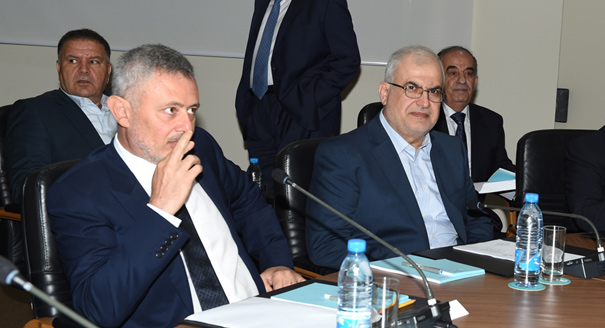To the untrained eye, the video below may not seem like very much. But in Lebanon, it represented much more last week, because, as the Lebanese know, an image can be worth a thousand words. That’s why politicians in the country are increasingly resorting to lapidary posts on social media to issue their most biting messages.
— Sleiman Frangieh (@sleimanfrangieh) October 14, 2016
The video in question appeared on the Twitter handle of Sleiman Franjieh, a parliamentarian from northern Lebanon, who is also one of the major candidates for the country’s presidential election. As readers can see, it features a small electric car, possibly driven by Franjieh himself, a well-known aficionado of such devices. The car is seen hitting the walls of a living room, moving around without definite direction, absurdly trying to climb walls, only to fall on its back and spin around for several long seconds. Its trajectory suggests nothing but futility.
One could think that the video was taken one lazy afternoon by the bored young politician, a zaim, or traditional leader (and grandson of a former Lebanese president), from the town of Zghorta. However, a closer look at the car offers another explanation: it has four orange wheels, the color of the Free Patriotic Movement of Michel Aoun, who is Franjieh’s rival for the Lebanese presidency.
Both men are today’s frontrunners in an election that has been put off multiple times, because parliament, which elects presidents, has been unable to form a quorum. That’s why Lebanon has been without a president since Michel Sleiman left office in May 2014. Both Franjieh and Aoun are supposedly allies, aligned with the March 8 camp led by Hezbollah, and close to Syria. But both also perceive themselves as embodying the characteristics of the “strong Maronite” leader (in Lebanon the president always comes from the Maronite Christian community) needed to rebalance a Lebanese sectarian power game that has become almost exclusively polarized between Sunnis and Shiites.
The two are vying for the favor of Hezbollah’s secretary general, Hassan Nasrallah, the ultimate kingmaker in their rivalry, as well as the favor of Syrian President Bashar al-Assad. Each also considers that the future is his (even if the formidably ambitious Aoun is over 80)—Franjieh because of his close friendship with Assad, who appears to be making military headway in Syria; Aoun, because of his large constituency in the Christian community, which he managed to attract toward the so-called Axis of Resistance in Lebanon and the region.
In Lebanon, however, the game is not merely an electoral one. And that is where Franjieh’s video came in—both hilariously telling and cruel in mocking the old Maronite leader, who is probably waging his last major political battle. Aoun has lately been engaged in a charm offensive, seeking to build bridges to all political forces in parliament, after having burned his bridges with most. He is now striving to seduce the Sunni leader Saad Hariri, whose bloc’s votes are necessary for Aoun to be elected. But until last week Aoun’s efforts had made little headway. Hezbollah, despite its partnership with Aoun, has quietly worked to prolong the presidential vacuum in such a way as to better control the system and impose its agenda once, and if, the military campaign in Syria is won.
In that context, the video images of the orange-wheeled car perhaps said it all: Aoun was going every which way to gain votes that he needed to win, but the likely outcome was, simply, that nothing would change.
However, this week, amid reports that Hariri had taken a decision to back Aoun, Franjieh’s car metaphor appeared to take on new meanings. To Aounists, who believe that their favorite may soon become president, the video could be turned against Franjieh, in order to push the young politician to climb the walls and spin in rage.
Or, alternatively, if Hezbollah, through several of its allies, continues to block an election, the video would show that Franjieh knew beforehand what was in the air. That would mean that his deeper message was more pernicious: Instead of losing time and energy pursuing an impossible task, Aoun should have realized that the orange-wheeled car was being controlled by someone else.






